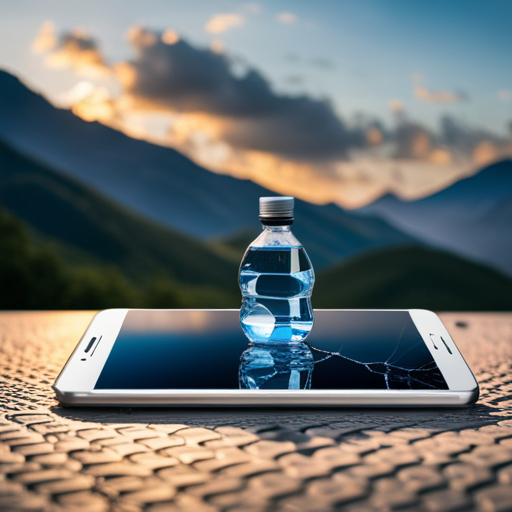Are you considering using reverse osmosis (RO) water in your batteries? While it may seem like a good idea in emergency situations, using it regularly can lead to permanent damage. In this article, we’ll explore the benefits and limitations of using RO water in batteries and compare it to distilled water, which is the best choice for batteries with zero total dissolved solids (TDS) and a pH between 5-7.
RO water is a popular method for purifying water, but using it in batteries can be risky. While it may remove impurities from the water, it also removes minerals that are necessary for the proper functioning of batteries. The TDS level of the water is a crucial factor to consider when choosing the right water for your batteries.
In this article, we’ll take a closer look at the use of RO water in batteries and provide you with the information you need to make an informed decision.
Key Takeaways
– Regular use of RO water can permanently damage batteries by removing minerals necessary for battery functioning.
– High TDS levels in water can cause erosion and reduce battery lifespan, while tap water can lead to salt and contaminant buildup in batteries.
– Electrolytic solution in batteries requires water with TDS level less than 5 ppm and free of contaminants or salts, thus always choose distilled water for batteries.
– While RO water is suitable for everyday use, removing up to 99% of contaminants, distilled water is the best choice for batteries with zero TDS and optimal pH for battery performance.
RO Water and Batteries
If you’re considering using RO water in your battery, remember that while it can be used in emergencies with a TDS level of 5 ppm or below, regular use can permanently damage your battery.
This is because RO water has a low TDS level, which means it lacks the minerals and salts that are essential for the proper functioning of batteries. The TDS level affects the performance of batteries, and if it is too low or too high, it can cause problems.
RO water limitations should be taken into account before using it in batteries. While it’s suitable for drinking, washing silverware, vegetables, fruits, cooking, and baking, it’s not the best choice for batteries.
The water used for the electrolytic solution in batteries must have a TDS level less than 5 ppm and be free of contaminants or salts. This is why distilled water is the best choice for batteries with a zero TDS level and a pH between 5-7.
Best Water for Batteries
For optimal performance, you should choose distilled water with a pH between 5-7 for your batteries. Using reverse osmosis (RO) water can cause permanent damage to your batteries, as it often has a TDS level above the recommended 5 ppm for use in electrolytic solutions. High TDS levels in water can lead to the deposition of salts on metal electrodes in batteries, causing erosion and reducing their lifespan.
To better understand the importance of the right water for your batteries, take a look at this table:
| Water Type | TDS Level | pH Level | Effects on Batteries |
|---|---|---|---|
| Tap Water | High | Varies | Deposits of salts and contaminants |
| RO Water | Below 25 ppm | Varies | Erosion and deposition of salts on electrodes |
| Distilled Water | Zero | 5-7 | Optimal performance |
As you can see, using tap water in your batteries can lead to a buildup of salts and contaminants, while RO water may cause erosion and salt deposition. Distilled water, on the other hand, has a TDS level of zero and falls within the recommended pH range, making it the best choice for maintaining optimal battery performance. Remember, always choose distilled water when it comes to your batteries.
RO Water for Other Uses
When looking for a clean and pure source of water for everyday use, you may want to consider using reverse osmosis purified water. RO water is an excellent choice for drinking, cooking, washing silverware, vegetables, and fruits. It removes up to 99% of contaminants and has a TDS level below 25 ppm.
However, it is often mistaken for distilled water, which is created through a different process. RO water can also be used for delicate and exotic plants. However, it may lack some essential minerals that plants need to grow. In this case, you can add minerals back into the water by re-mineralizing it.
Additionally, boiling RO water can ensure further purification, but it doesn’t remove all remaining impurities. Therefore, it’s crucial to ensure that the water source is safe and free of contaminants before using it for any purpose.
Conclusion
So, can RO water be used in batteries? While it may be a temporary solution in emergency situations, regularly using RO water in batteries with TDS levels above 5 ppm can cause permanent damage.
Distilled water is the best choice for batteries with zero TDS and a pH between 5-7. Remember, batteries are an investment and proper maintenance is key to ensuring their longevity and effectiveness.
Stick to using distilled water and avoid using RO water unless absolutely necessary. With this knowledge, you can make informed decisions when it comes to maintaining your batteries.




